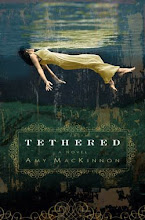The Big League
Posted by Lisa
Does there come a time when you're not a wannabe? Is it when you finish that first novel? When you are offered representation by a literary agent? Or have you arrived when you walk into a bookstore and see your novel on a shelf?
Maybe you're a writer when you've given it your all. And you're willing to do that again, and again. Self-doubt doesn't visit me as often as it used to - it barely even calls on the phone these days to leave a message. I've worked so hard, perhaps, that another reality, one in which I'm not a writer, doesn't exist.
The other night, a close friend asked me how things were going.
"Editors are considering my novel," I told him.
Silence greeted me on the other end of the phone, then an intake of breath, a clearing of his throat. "What if no one wants it?" he asked.
If he were standing in front of me I would have shrugged my shoulders.
"Oh," I considered, "I suppose that could happen. But it probably will sell. Anyways, I'm working on my next book. I am so into these new characters."
Sure it could happen, not selling novel number one, but I'd be okay. I am a writer. I love it. Not a week goes by when an image doesn't haunt me, or a setting doesn't call to me. Novels, my novels, wait to be written. Perhap one will be a best seller. Does it matter? Not really, because that I can't control, and life goes on.
I wonder then, have I arrived. I suppose that I have. But don't look for my name yet in the New York Times magazine. Or search for my books on Amazon. Give me a little more time. And, as Susan Cooper says, time, for a writer, is not altogether linear.


